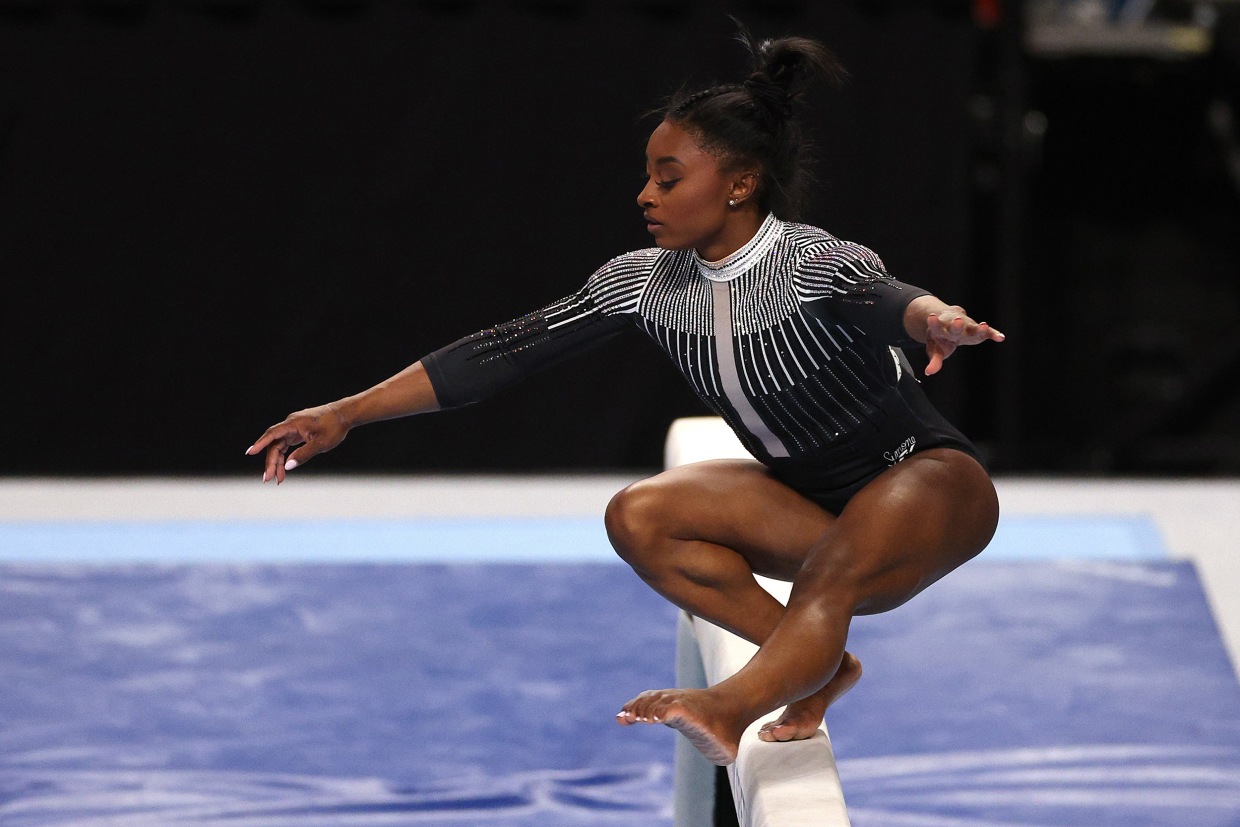Simone Biles, often heralded as one of the greatest gymnasts of all time, has once again proven her dominance in the sport by securing her sixth championship title. However, this latest victory has not been without controversy. A renowned Russian gymnastics coach has sparked a heated debate by calling for changes to the scoring rules, claiming that Biles’ performance was technically proficient but lacking in artistic and entertainment value. This statement has ignited a polarized discussion within the gymnastics community, highlighting the ongoing tension between rewarding technical difficulty and appreciating artistic expression.
The Controversial Comments and Their Implications
The Russian coach’s comments, though controversial, bring to light a significant issue within the sport. The coach argued that while Biles’ routines are technically impressive, they do not offer the artistic value that should be equally prioritized in gymnastics. This perspective challenges the current scoring system, which heavily rewards technical difficulty and execution. Biles is renowned for her ability to perform elements of extreme difficulty, often incorporating moves that no other gymnast can replicate. Her consistent excellence in these areas has set her apart and garnered numerous accolades.
The call for rule changes has elicited a mixed response. Supporters of Biles argue that her ability to perform such difficult tasks flawlessly is what makes her a champion. They believe that the scoring system should continue to reward technical excellence and difficulty, both of which Biles consistently demonstrates. Conversely, critics, echoing the Russian coach’s sentiment, argue that the sport should place a greater emphasis on artistry and innovation, which could potentially level the playing field for other gymnasts.
The Historical Context of Scoring in Gymnastics
This controversy is not new to gymnastics. The sport has historically experienced shifts in scoring emphasis, oscillating between prioritizing artistic expression and technical difficulty. In earlier eras, the artistic aspect of routines was given more weight, celebrating gymnasts who could combine technical skills with expressive performance. However, the current era, epitomized by athletes like Biles, places a premium on technical prowess and the ability to push the physical boundaries of the sport.
Simone Biles’ performances are a testament to the evolution of gymnastics. Her routines are characterized by an unparalleled level of difficulty, showcasing elements that redefine what is possible in the sport. While this has solidified her status as a trailblazer, it has also sparked debates about the balance between technical difficulty and artistic expression.
Biles’ Response and the Broader Impact
Simone Biles has not directly responded to the Russian coach’s comments, but she has previously addressed the challenges and criticism she faces as a pioneer in gymnastics. Her focus remains on pushing her limits and inspiring the next generation of gymnasts. Biles’ achievements have not only redefined excellence in gymnastics but have also prompted a reevaluation of what it means to be the best in the world.
The debate sparked by the Russian coach’s comments is likely to continue, leading to broader discussions about the future direction of the sport. As the gymnastics community grapples with differing perspectives, it is clear that Biles’ impact on the sport is profound and far-reaching. Whether or not rule changes are implemented, her legacy as a groundbreaking athlete who has expanded the possibilities in gymnastics is undeniable.
Conclusion
The controversy surrounding Simone Biles’ sixth championship title and the subsequent call for scoring rule changes underscore the ongoing tension within gymnastics between rewarding technical difficulty and appreciating artistic expression. Biles’ dominance in the sport has challenged traditional notions of excellence and sparked important discussions about the future of gymnastics. As the community continues to debate and evolve, Biles’ legacy as a transformative figure in the sport remains firmly established, inspiring admiration, controversy, and a reevaluation of what it means to be the best.


